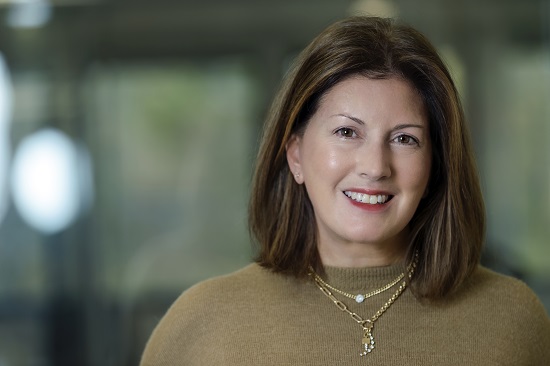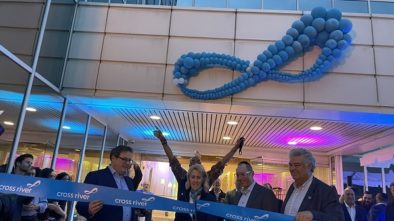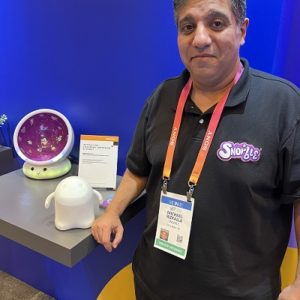Kelly Ford Talks about Edison’s Investment Journey with Northpass, Which was Sold to Gainsight in June
Edison Partners, a Princeton-based growth equity investment firm, recently announced that it had exited from its investment in Northpass (Parsippany) via a sale to strategic partner Gainsight (San Francisco), a Vista Equity Partners ( Austin, TX) company. Northpass has a training platform that powers customer-education programs for enterprise and midmarket companies. Its founder and CEO was Stephen Cornwell.
NJTechWeekly.com spoke with Kelly Ford , general partner and COO at Edison, who sat on Northpass’s board, about the VC firm’s investment journey with Northpass.
ES: Edison has been investing in New Jersey growth companies for years. Tell us about this particular investment.
KF: Yes, we’ve had more than 50 investments in New Jersey-based tech companies. The last exit we had from a New Jersey company was Billtrust (Lawrenceville) in 2018, and we’ve had partial exits from Zelis (Morristown) and Health Recovery Solutions (Hoboken), where we cashed out some of our investment, rolled ownership and stayed on the board.
For Northpass, the time between investment and exit was relatively short. We typically hold companies from four to seven years, and we invested in Northpass in April of 2019. The transaction closed with Vista and Gainsight on June 30, 2023, so just over four years. We invested at an early stage of the company, out of our ninth fund.
Our initial check was smaller than our typical investment, but the company was growing quickly. As they hit their marks, performed and revenue growth accelerated, we were able to put more capital into the business over the life of the investment.
ES: So how did Northpass first get on Edison’s radar?
KF: As a firm, we track tech companies that are in underserved markets and, believe it or not, New Jersey is considered a secondary market. We leverage technology and old-fashioned relationship-building tactics to track and get to know companies, typically for more than 26 months prior to making an investment.
We’re also theme driven, focused on fintech, healthcare IT and enterprise SaaS [Software-as-a-Service] sectors. Northpass was in the enterprise SaaS bucket. As with many Edison investments, Northpass had never raised capital prior to our series A investment.
An associate on our team made the connection with Steve, and we got to know the company a bit over some time. As we started to see momentum, we thought that if they took capital at this point in time, it would really accelerate their growth. Steve agreed. I don’t recall it being a competitive process.
ES: What did you like about Northpass when you initially began looking at them?
KF: Our thesis for the investment was that traditional learning-management systems were stale, heavy and not very modern. There was a market opportunity for a more modern system, particularly for small businesses, but all the way through to large enterprise customers. We believed that small and mid-sized companies should be able to deliver great learning experiences, without having to invest so much in people and resources to deliver customer academies, partner academies and learning digitally. That was our thesis and that was certainly what the company was going for.
What we really liked about the product was that it was super easy to deploy and configure for Northpass customers. It didn’t require customization and a lot of services or a lot of hands on the product. There were some twists and turns from a go-to-market perspective in terms of the profile of the customer that we were targeting over those four years. They were selling to small and mid-sized businesses initially, but were starting to show some success selling to much larger customers, too.
ES: How did Northpass fair during the pandemic?
KF: When the pandemic hit, a couple of interesting things about the business changed. All the employees — other than their R&D organization, which is based in Poland — were based in Parsippany. The company has a culture where employees want to be together working in the office. Certainly, there was a time when everybody was home and the offices were closed, but during the pandemic and post the pandemic they continued to build a company and a culture, continued to hire and have people in the office. Their workplace practices centered around all New Jersey-based employees being together in the office. I really appreciated that, since we have a similar culture at Edison. And I knew that if I wanted to spend time with Steve or he with me, we could go there in person or he or any of his team members would come to us in person or vice versa.
From a market perspective and their customer type, the pandemic created a lot of opportunity for Northpass with on-demand businesses. They had success with modern digital-first organizations that were thinking differently about the investments they needed to make to educate their customers and their partners. And then, over time, Northpass started to build confidence and have the competence and also the demand to move upmarket and take on larger customers, such as Walmart.
During the pandemic, there was a lot of learning about different customer types. And the team really proved their ability to be nimble and move with the market, to focus on the best profile of the customer upon which to continue to grow the business. And over the last year or so, looking at their different customer cohorts, they realized that customer education as a use case and as a strategic initiative for a company was really where they should place their bets. They were prioritizing this and investing in the customer success function. At the same time, ChurnZero came knocking to resell Northpass’ product. So that was pretty good market validation that honing in on customer success functions was the right move.
ES: What did Northpass’s board look like?
KF: I was on the board for Edison. John Cornwell was chairman. Steve was on the board as CEO. Then Colin Day [former CEO of iCIMS, in Holmdel] served as the outside independent board member. Colin played that role as an experienced founder and a Software-as-a-Service executive. There are some similarities in his journey with iCIMS as a horizontal B2B SaaS player. His expertise was super relevant, and really of high value to Steve, the company and the board.
ES: I know that no financial details were released, but did the deal meet Edison’s expectations?
KF: At Edison we talk in terms of expected, optimistic and pessimistic cases. This one fell in the expected case category. The company was still a growth company from a revenue perspective. It was growing nicely, but had not quite reached scale yet for an outsized optimistic case outcome. This was right down the middle, with a strategic buyer of a super-complementary technology application.




